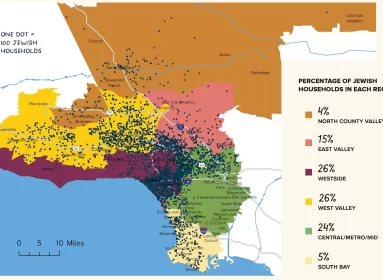
By Cindy Mindell
FAIRFIELD – Rabbi Jack H. Bloom, PhD, z”l died on Wednesday, May 25 at age 83. The longtime Fairfield resident will not only be remembered for his role in establishing Congregation Beth El in Fairfield, but also for his passionate commitment to helping his rabbinic colleagues across denominations and throughout the world.
That dedication is reflected in the honorary doctorate presented to Bloom by the Jewish Theological Seminary (JTS) in 2001. The certificate reads, “Your love and respect for the work of your colleagues has made you the quintessential rabbi for rabbis.” At the time, Bloom had not served as a pulpit rabbi for more than 30 years. But he had spent his entire career helping thousands of fellow and future rabbis stay vigorous, healthy, and “human” in their demanding leadership roles.
Bloom earned a BA in Hebrew Literature from the Jewish Theological Seminary of America and the Columbia University School of General Studies joint-degree program in 1954. After receiving an MA in Hebrew Literature and rabbinic ordination from the Jewish Theological Seminary in 1959, he came to Fairfield as
the first rabbi of the newly-renamed Congregation Beth El, founded in 1954 as the Fairfield Jewish Community Group. He succeeded Rabbi Arthur Haselkorn, who had led the congregation from 1957. Bloom would serve Beth El over the next decade.
“It’s as if Jack Bloom walked in, turned on the lights, turned up the sound and said, ‘Action!’” recalls Lanie Dommu, who was 12 when Bloom arrived, and joined the first group of b’nai mitzvah organized by the new rabbi.

Jack Bloom chatted with Dr. Martin Luther King at The Klein in Bridgeport, where Bloom had invited the Civil Rights leader to speak following the march in Selma, Alabama in 1965.
“He really engaged everybody in Judaism – children, teens, and adults alike. He basically taught us how to daven; he taught us the nusach – the tunes for prayers and songs,” Dommu said. “On Friday night, my mother and I would rush through dinner and run out the door to services because they were just so wonderful.” Under Bloom’s leadership, programming was expanded for post-b’nai mitzvah and adults, and the congregation erected a new building to replace the old two-story “white shack” that served as a temporary synagogue.
Dommu’s contemporary, Laurie Perlstein, was also 12 at the time. “I remember Rabbi Bloom very well because he really made us enjoy being Jewish,” recalls the still-active congregant, who now lives in Milford. “He was really into connecting with teenagers and I think the whole synagogue was into supporting us and making sure we felt very connected at services. Most of us came away with a deep appreciation of Judaism.”
Bloom encouraged his congregants to attend services not only on the High Holidays, but on minor holidays as well, and met with local school administrators to request religious exemptions for Jewish students on those days.
“I am still committed to Beth El and to Judaism and I think a large part of that is because of my time with Jack Bloom,” Perlstein says.
Bloom’s imprint remains to this day, according to Dommu, who lives in Manhattan but returns to Beth El for High Holiday services.
“He laid a foundation and planted the seeds and really cultivated some of the best things about the congregation today,” she says. “Obviously, each rabbi who has come has made contributions but I still think that the best things arise from some of what Jack planted and cultivated when he first got there.”
During his 10 years at Beth El, Bloom began to wrestle with the unique demands of the pulpit. He served for a year as director of the JTS’s Hebert H. Lehman Institute of Ethics, where he organized and directed two nationwide conferences on the role of the rabbi. He earned a Master’s of Sacred Theology in Pastoral Counseling from the Postgraduate Center for Mental Health in New York in 1966, and began a PhD program in clinical psychology at Columbia University in 1967.
Bloom “fled” congregational life after 10 years, tired of the high symbolic expectations that the job required, and struggling with issues of loneliness and isolation. He worked for a year in Israel and returned to the U.S., completing his doctoral degree in 1972.
That year, he opened the Psychotherapy Center in Fairfield where he worked in private practice until retiring last year, at age 82, and rented space to fellow therapists, including the Gestalt Institute of Connecticut and the Milton H. Erickson Institute of Connecticut.
Even after leaving the Beth El pulpit, Bloom remained active as a congregant. As chairman of the Bureau of Jewish Education of Greater Bridgeport from 1980 to 1993, Bloom created the Merkaz Community High School for Judaic Studies, which just marked its 36th anniversary.
Bloom’s first book, The Rabbi as Symbolic Exemplar: By the Power Vested in Me (The Haworth Press, Inc., 2002), grew out of his PhD dissertation and explores the challenges of the rabbi’s life. The book is used in every Jewish seminary in the U.S. and beyond. Rabbi Marcelo Kormis, who has served Congregation Beth El since 2012, studied the text while a rabbinical student at the JTS affiliate in Buenos Aires, Argentina.
“Rabbi Bloom was one of the first people I met when I came to Fairfield four years ago and from the very beginning, we had a very close relationship,” Kormis says. “He always counseled me and gave me a lot of good advice about how to develop my rabbinate in Fairfield and in the United States. He really contributed to Judaism from many different levels and perspectives, and this was one of them: helping his colleagues to strengthen their service and their rabbinate. His revolutionary approach was that he thought about the rabbi not only as clergy but as a human being. He understood that the rabbi’s life is not only about the rabbi himself or herself, but also composed of his or her family.”
Throughout his career, Bloom helped thousands of rabbis, cantors, and rabbinical students of all denominations hone their skills and learn self-care in a uniquely demanding field. He would consult privately with rabbis from across the country, and presented many lectures and workshops in institutional settings such as the JTS’s Rabbinic Training Institute, the Cantors Assembly, and the National Association of Jewish Chaplains. The topics Bloom addressed reflected his abiding concern for colleagues’ professional health and personal growth, and touched on issues such as “replenishing rabbinic vigor,” “extricating oneself from difficult rabbinic situations,” and “dealing with inner conflicts and loneliness.” He created a professional career-review program for the Central Conference of American Rabbis, which he directed for more than 30 years. Bloom was one of a handful of rabbis with full membership in the Central Conference of American Rabbis (Reform), the Rabbinical Assembly (Conservative), and the Reconstructionist Rabbinical Association.
Reaching beyond the Jewish world, Bloom was involved in the Civil Rights movement, and marched alongside Dr. Martin Luther King, Jr. and Rabbi Abraham Joshua Heschel in Selma, Ala. in 1965. He coached clergy and pastoral counselors of all denominations and founded the Fairfield Clergy Association.
In 2006, Bloom expanded his research and writing to report on the work of Jewish professional caregivers. The result, Jewish Relational Care A-Z: We Are Our Other’s Keeper (Haworth Press, Inc.), is a collection of writings by a range of expert Jewish caregivers around the country. (“A-Z” refers to the last names of the contributors.)
His many published articles – including several in the Connecticut Jewish Ledger – explore facets of Jewish life and history, psychotherapy, and pastoral care, as well as personal reminiscences and tributes. His love of language resulted in two books, Using Your Mouth with Your Head, on effective communication, and Blessings for You from Head to Toe, illustrated by his wife, Ingrid.
In addition to his wife, Bloom is survived by his daughters, Rachel Faiga and her husband Oren, and Rebecca Bloom; his grandchildren, Ben, Lee, and Elle; his step-son, Kenneth Baker and family; his step-daughter, Kirsten Lambert and family; and his older brother, Saul “Ace” Bloom and family.
CAP: Jack Bloom met with REP. Joe Lewis at The Edmund Pettus Bridge in Selma, Alabama in 2008 – 43 years after the two men marched there together.








 Southern New England Jewish Ledger
Southern New England Jewish Ledger








